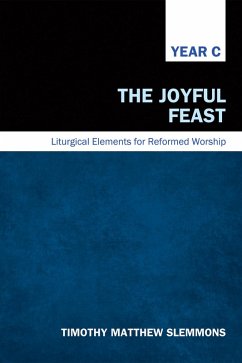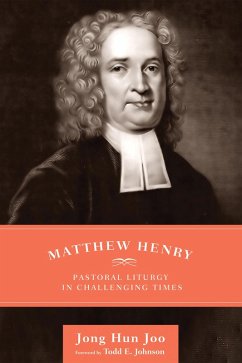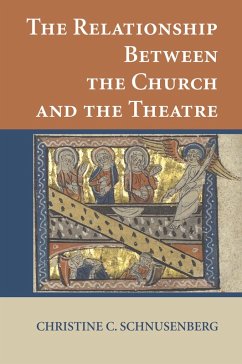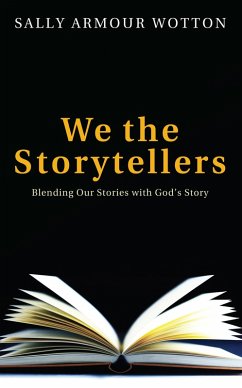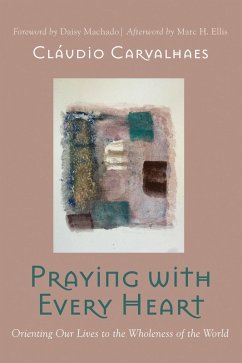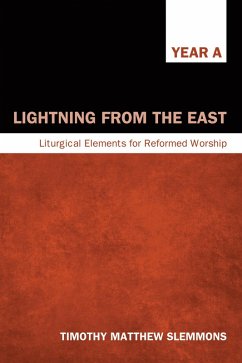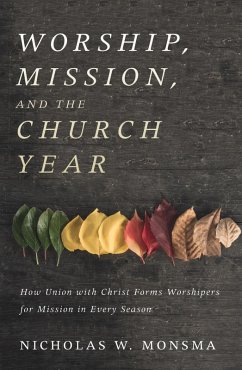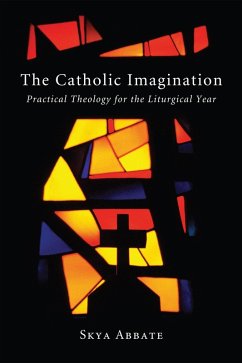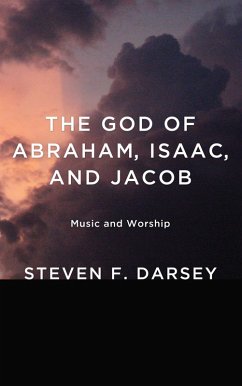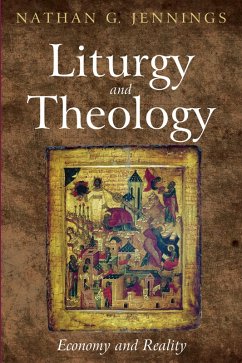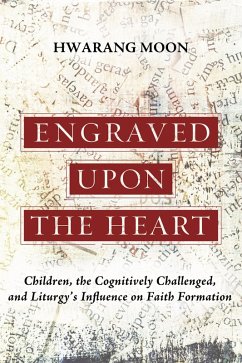
Engraved Upon the Heart (eBook, ePUB)
Children, the Cognitively Challenged, and Liturgy's Influence on Faith Formation
Versandkostenfrei!
Sofort per Download lieferbar
17,95 €
inkl. MwSt.
Weitere Ausgaben:

PAYBACK Punkte
9 °P sammeln!
How does liturgy impact the formation of faith? The Protestant Church has traditionally emphasized human reason and doctrinal knowledge. But there is another method with great formative power--participation in liturgy. Human beings gain important knowledge not only through traditional, cognitively focused learning, but also through practice and participation. And because knowledge is wholistic, an inability to express an idea in language does not necessarily signify an absence of knowledge. This book shows how liturgy transmits knowledge that transcends human reason. We repeat the liturgy in w...
How does liturgy impact the formation of faith? The Protestant Church has traditionally emphasized human reason and doctrinal knowledge. But there is another method with great formative power--participation in liturgy. Human beings gain important knowledge not only through traditional, cognitively focused learning, but also through practice and participation. And because knowledge is wholistic, an inability to express an idea in language does not necessarily signify an absence of knowledge. This book shows how liturgy transmits knowledge that transcends human reason. We repeat the liturgy in weekly public worship, and its contents are inscribed on our minds and bodies. Contrary to common belief, this is also true for children and cognitively challenged individuals. They may be unable to verbally express the contents of their faith in a way that satisfies "normal" adult expectations, but these two groups of people are capable of rich religious experiences. This book explores how welcoming them into experience and practice of worship and sacrament can benefit children, cognitively challenged church members, their families, and the church community as a whole, and makes us all a more inclusive community in Christ.
Dieser Download kann aus rechtlichen Gründen nur mit Rechnungsadresse in A, D ausgeliefert werden.




